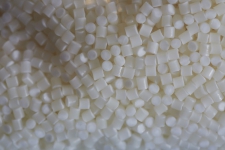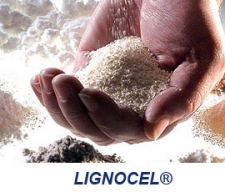
Plastics / Composites / Rubber
Chemical intermediates for production of polymers (building block, reaction component)
Additives for plastic formulation (dye, plasticizer, etc..)
Resins, compounds
Reinforcements (load, technical fabric, etc.)
You are here
-

Bio-succinic acid
BioAmber
Bio-succinic acid is produced by fermentation of glucose and CO2.
The cost of our succinic acid is lower than butane derived succinic acid, and the purity is higher.Last update 20/08/2013 -

Bio sourced rubber additive
Lefrant Rubco
Factice is a bio-sourced additive for rubber and the only unextractable ingredient. Its excellent compatibility with all elastomers makes it indispensable.
Its main advantages : Introduction of Green Chemistry into rubber, Improved mixing process, Improved processing, Improved surface appearance, Improved ageing propertiesLast update 13/02/2014 -

AONILEX
Kaneka Belgium NV
AONILEX is a 100% bio-based polymer produced by microbial fermentation from plant oils. The products are biodegradable to carbon dioxide and water under aerobic, anaerobic and marine conditions. AONILEX can improve biodegradability of other bio-polymers such as PLA, PBAT, PBS through blending.Last update 28/05/2014 -

Wood fibers and powders / Lignocellulose: LIGNOCEL
JRS RETTENMAIER France
Hard or soft wood fibres.
Possible lenght from 40 µm to 5-10 mm.
Several applications: building chemistry, plant cultivation & protection, welding electrods, wine aging, seed coating, filtration, surface treatment, petcare, animal nutrition, cleaner for carpets, paper & cardbaord, handwashing paste...Last update 15/07/2020 -

Dimethyl sebacate
Arkema
Dimethyl sebacate is a product of vegetal origin, processed from castor oil. It can be used an intermediate to produce light stabilizers, a plasticizer, softening agent and solvent for cellulosic resins, synthetic resins and rubbers.Last update 15/05/2014



